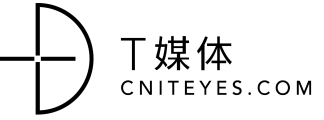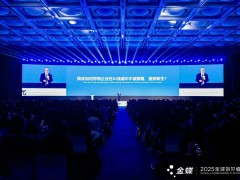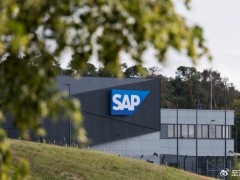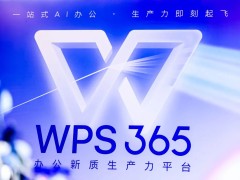PayPal的Max Levchin聘请到最好的工程师的诀窍
译者:张苏月 关键词:PayPal,Max Levchin,聘请人才 编者按:美国在线交易平台PayPal于上月刚刚发布了其第三季度的营收报告,收益增长强劲,比2015年第三季度增长了18%,并且在Facebook Messenger上推出新的支付功能,同时完成了与Bitcoin公司的合作。之所以能够取得这么丰富的成绩,其创始人之一Max Levchin认为这是与其好的团队是分不开的,而好的团队则是由优秀的人才组成的。本文中Max Levchin讲述了自己招聘好的工程师的一些诀窍,这或许对很多创业公司来说值得借鉴。译者:张苏月 关键词:PayPal,Max Levchin,聘请人才 编者按:美国在线交易平台PayPal于上月刚刚发布了其第三季度的营收报告,收益增长强劲,比2015年第三季度增长了18%,并且在Facebook Messenger上推出新的支付功能,同时完成了与Bitcoin公司的合作。之所以能够取得这么丰富的成绩,其创始人之一Max Levchin认为这

在硅谷历史上,Max Levchin曾经建立、管理和投资了一些最强的技术团队。虽然他聘请工程师的方法有时看起来令人难以理解,但结果很棒。在第一轮CEO峰会采访中,Max分享了PayPal 和 Slide吸引和留住优秀人才的哲学,这与通常所讲不同。
一、有疑问才是最无可置疑的 一个公司最初几个员工的招聘过程将会是创始人做出最重要的决定。这些员工未来几年将塑造企业文化和企业前景,并且不能被轻易改变。在 PayPal,Levchin的宗旨是坚决不能做出错误的招聘,并且他强烈地坚持意见统一的聘请过程。如果团队中的一个人不喜欢某个候选人,那么他们就不会聘请此人。 Levchin继续共享到,“坊间有一些关于我的荒诞的故事,说我不聘请某些人是因为他们在面试当中使用了错误的词…我相信我们有很多漏报,但是我们有很少的误报。”不过,宁可在招聘的时候失去一个超级巨星,也比聘请一个会破坏或毁灭公司的人强。电影Ronin里面的一句话用在这里非常合适,“有疑问才是最无可置疑的。” 二、招聘优秀人才的关键 在PayPal,Levchin和早期的团队通过引进一些他们所熟知的人来减少那些令人苦恼的聘请决策。PayPal的前10个工程师和Levchin共同学习进步。前五个业务员工来自斯坦福大学Peter Thiel的朋友网。虽然有简历筛选、严格的面试以及LinkedIn资料等等这些良好的招聘渠道,但是经过多年的摸索,PayPal团队认为招募到一个合适的人最简单的方式是本来就知道这个人是很棒的。
图:早期的PayPal团队,Levchin位于最后一排左边。
众所周知,你不可能从你的交际圈中挖掘到足够多的优秀人才来构建整个团队。虽然在某些方面确实如此,但Levchin的经验是,几乎每个人实际上所认识的优秀人才比自己心里所想的要多。挑战在于,大多数创业者排除了顶尖人才,因为他们认为自己永远无法真正让这类人才加入自己的团队。 Levchin在早期就学会了不要去犯这个错误。PayPal成立时,他静下心来创建了一个录取候选人的列表。他每建立一行列表都会写一个名字。Levchin回忆起,“Peter Thiel让我坐下,然后他让我亲手写下我在大学里所知道的每一个聪明的人。结果我们完成了一个大约30人的名单,最终聘请了其中的大约24个人。” 你不能仅仅因为认为自己不可能聘请到某个人而排除任何一个潜在的被聘请者。他继续指出,“我们这叫级联效应,在这种效应下我们团队的每个人将被迫写下他们所知道每一个聪明的人,而这些人是他们绝对相信自己不可能聘请到的。然后我就像妖怪一样缠着这些人,直到他们最终妥协。” 三、思想的多样性是前进速度的阻碍剂 对早期创业公司来说,速度是你最有价值的武器。总会有一些大公司,他们拥有更多的工程师,设计师,更多产业范围以及更多的资源。但是掌握好速度,你仍然可以比他们更快的到达目的地,这是你的竞争优势。那么问题就来了:创业公司如何尽可能快的前进呢? 我们都认识到,单独工作是最有效的操作方式。它让每个人在做同一件事的时间最小化,降低通信成本,而且关于产品愿景没有任何争议。毕竟,你只有自己去面对这些。然而,由于大多数产品相当复杂,所以组建团队成为必然,而组建速度的关键之一是早期阶段与小团队坚持团结一致。 从这个意义上来说,思想的多样性在早期团队中可以成为速度的抑制剂。“如果你让人们去走访五个不同门类计算机科学的学校,一组把Java作为他们的主要语言并且很喜欢它,另一组喜欢PHP,而第三组则确信PHP是很难让人理解的语言,而Python这种设计语言则是美丽的,那么此时你只有准备一场无休止的辩论赛了。” 当一个软件团队浪费一天的时间讨论使用哪个版本的Python时,那就已经失去了讨论的优势。这并不是说,Python的使用版本并不重要。只是对于早期创业公司来说,选择合适的工具在绝对意义上并没有正确的工具那么重要,而且只要人们知道工具是如何使用的就行了。 思想的多样性在一个公司生命的后期阶段是最有价值的。Levchin说,“当你进入一个未知的领域,你没有任何知识背景的时候,你需要那些与你与众不同的人的观点。在这一点上,思想的多样性是非常有价值的。”这听起来非常容易,但维持这种平衡是很困难的。 四、让你的公司与众不同 Levchin认为,最好的工程师对于工作和面试过程都希望具有挑战性。“我们给公众留下了这样一种印象:想要进入PayPal工作非常难。尽管实际上进入面试都很难,但我们传播了这样一个观点:就像进入PayPal一样,这确实非常难。首先,你必须有190的智商,也就是说很聪明,然后你必须是一个了不起的程序员,最后是其他五个要求。真正聪明的人看了看这些要求,说:“这是一个挑战。我要去面试,只是想要给这些傻瓜证明,我比你们更好”。当然,谈话结束,我会说,“也许你想在这里找一份工作因为你很了不起。” Levchin的经验教训 在我们的谈话中,Levchin说出了他的整个职业生涯中最大的一些错误。他的教训可以总结如下: 道德和信任不是基于百分比的游戏。一个人在某些点上不能达到99%。但其诚信或许可以达到这么高。 每个人都记得美好的时光。而恰恰是那些不好的时光,我们搞砸的时光是应该被记住的。“我学到的最大的教训之一伤害大的事情一旦发生了就要写下来记住。”否则,一年以后,你就会忘记,就会再次犯同样的错误。 最后想说:“我没有花很多时间在早期的时候定义公司的文化。”当一个创业公司始于过分宽松的文化,那么它以后就很难变得严格。也就是说,过些时候慢慢地放宽企业文化比试图执行严格的企业文化要容易的多。 The Trick Max Levchin Used to Hire the Best Engineers at PayPal http://firstround.com/review/the-trick-max-levchin-used-to-hire-the-best-engineers-at-PayPal?utm_source=wanqu.co&utm_campaign=Wanqu+Daily&utm_medium=ios Max Levchin has built, managed and invested in some of the strongest technical teams in Silicon Valley history. While his approach to hiring engineers can be unorthodox at times, his results are undeniable. In this First Round CEO Summit interview, Max shares insights on the unconventional hiring philosophies that PayPal and Slide implemented to attract and retain great people. Doubt = No Doubt The first few hires at a company are the most important decisions a founder will ever make. These hires will shape company culture and vision for years to come and can’t easily be undone. At PayPal, Levchin was religious about not making the wrong hire and believed strongly in a unanimous hiring process. If one person on the team didn’t like a candidate, they wouldn’t make the hire. Levchin shared, “There are some legendary-ish tales of me not hiring people because they used the wrong word in an interview... I'm sure we had lots of false negatives, but we have very few false positives.” It's better to err on the side of losing a superstar here or there than make a hire that’ll disrupt or ruin a company. A quote from the movie Ronin puts it perfectly, “Whenever this is any doubt, there is no doubt.” There are some legendary-ish tales of me not hiring people because they used the wrong word in an interview. The Trick to Hiring Great People Levchin and the early team at PayPal limited the number of agonising hiring decisions by bringing in people they knew. The first 10 engineers at PayPal went to school with Levchin. The first five business hires came from Peter Thiel's network at Stanford. While resumes, rigorous interviews and LinkedIn profiles provide a good proxy, the most foolproof way to recruit a good person is to know, over years of interaction, that the person is great. Early PayPal team - Levchin is in the back left. It’s easy to think you can’t possibly know enough good people from your network to build out an entire team. While in some ways that’s true, Levchin’s experience is that almost everyone actually knows more good people than they believe they know. The challenge is that most founders rule out top talent because they think they’ll never be able to actually get them to join their team. Levchin learned early on not to make this mistake. When PayPal was founded, he sat down and created a list of potential engineering hires. When he was done he had a single name written down. Levchin recounts demoralizing exercise, “Peter [Thiel] sat me down and he made me write down every smart person I knew in college personally. Turned out to be a list of about 30 people and we ended up hiring about 24 of those.” You can’t rule potential hires out just because you don’t think you can win them. He went on to note, “We had this cascading effect where our team would be forced to write down everybody smart they knew that they were absolutely confident they could never hire. We then went after them like banshees and they would eventually crack." Diversity of Thought Can Slow You Down At an early-stage startup, speed is your most valuable weapon. There are always bigger companies that have more engineers, more designers, more distribution and generally more resources. But with the requisite speed, you may be able to get there faster — it’s your competitive advantage. The question becomes: How can a startup move as fast as possible? We all recognize that working solo is the most efficient way to operate. It minimizes the amount of time spent getting everyone on the same page, reduces communication costs to zero and there aren’t any disputes about product vision. After all, you only have yourself to contend with. However, since most products are sufficiently complex that forming a team is a foregone conclusion, one of the keys to generating speed is by holding on to the magic of the early days with small teams. In this sense, diversity of thought in an early-stage team can be an inhibitor of speed. “If you have people that went to five different computer science schools and one group knows Java as their primary language and loves it, and the other group loves PHP, and the third group was convinced that PHP is the work of the devil and Python is beautiful, you're just going to have debates.” The moment a software team wastes a day debating which version of Python to use, it has lost it’s nimble edge. That’s not to say that the version of Python used isn’t important. It’s just that for an early-stage startup, the right tool in the absolute sense is less important than the right tool for the people in the room — it is always the tool people know how to use in that very moment. Diversity of thought is most valuable at later stages of a company's life. “As you get into the uncharted territory where you don't actually have any intellectual background you need perspectives from people that are very different from you. At that point, it's actually quite valuable to have people that are diverse.” Levchin shares. It sounds obvious, but maintaining this balance can be difficult. Make Your Company Different Levchin realized the best engineers wanted to be challenged both in their jobs and in the interview process. “We cultivated a very public culture of being incredibly hard to get in. Even though it was actually very hard to get good people to even interview, we made a point of broadcasting that it's incredibly hard to even so much as get into the door at PayPal. You have to be IQ of 190 to begin with, and then you have to be an amazing coder, and then five other requirements. The really, really smart people looked at it and said, 'That's a challenge. I'm going to go interview there just to prove to these suckers that I'm better.' Of course, by end of the conversation, I'm like, 'Maybe you want to come get a job here because you're pretty amazing.'" Levchin’s Lessons Learned the Hard Way Throughout our conversation, Levchin peppered in some of the biggest blunders throughout his career. The lessons he learned can be summed up here: Ethics and trust are not percentage-based games. A person cannot be 99% there. Trustworthiness is either there or it’s not. Everyone remembers the good times. It’s the bad times, the time we screw up, that are tough to remember. ”One of the greatest lessons I learned is write down the things that hurts the most as soon as it happens.” Otherwise, in a year, you’ll forget and make the same mistakes again. ”Fuck up #1 at Slide: I did not spend a lot of time defining the culture of the company early on.” When a startup begins with an excessively lax culture, it is difficult to become strict later on. It’s always easier to relax it later on than try to retroactively enforce a stringent company culture.评论
- 暂时没有评论,来说点什么吧







